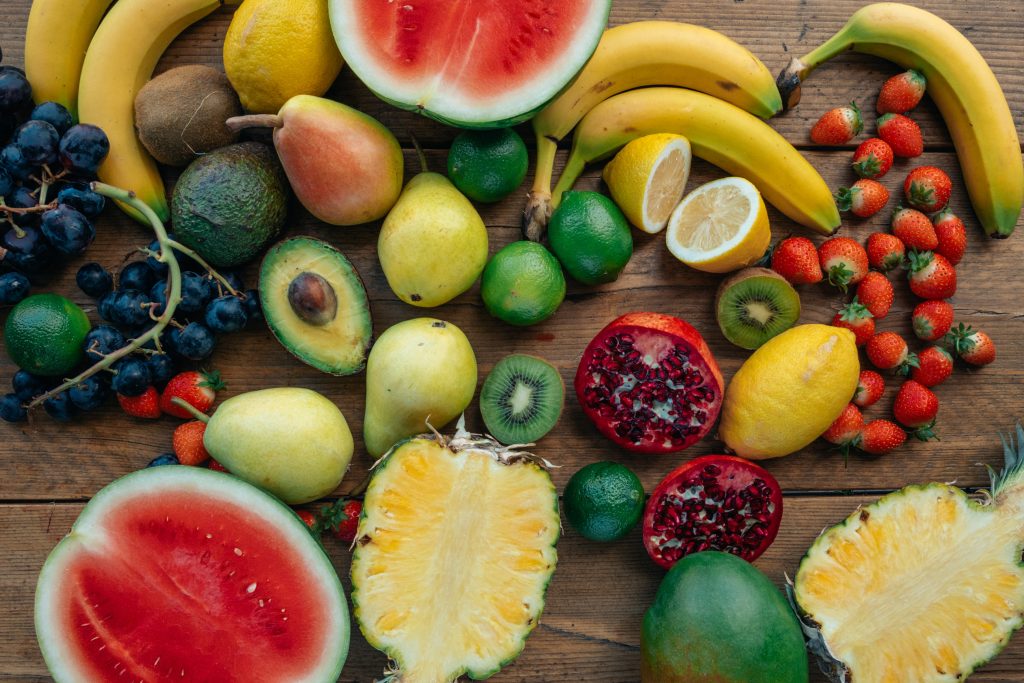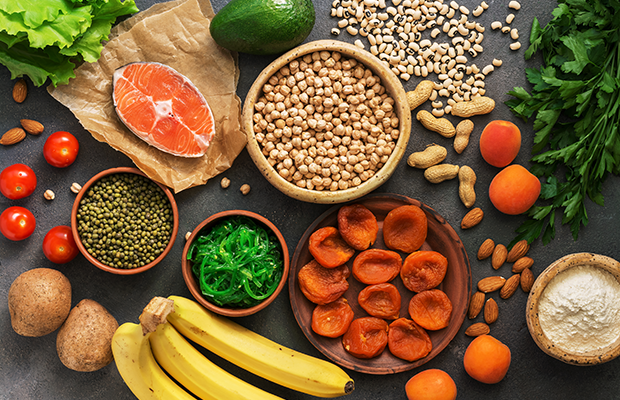High blood pressure, also known as hypertension, is a common condition that affects millions of people around the world. It occurs when the pressure of blood against the artery walls is constantly high, which can lead to serious health complications such as heart disease, stroke and kidney failure. While there are several factors that can contribute to the development of high blood pressure, food habits play an important role.

WisdomSpoon, highlights the relationship between food habits and blood pressure, and show you how changes to your diet can lower your risk of high blood pressure or hypertension.
Reduce Sodium Intake
One of the most important dietary factors that can contribute to the development of high blood pressure is sodium intake. Sodium is an essential nutrient that plays a critical role in maintaining proper fluid balance in the body, as well as proper nerve and muscle function. However, excessive intake of sodium can lead to an increase in blood pressure, particularly in individuals who are sensitive to sodium. This is because sodium causes the body to retain water, which increases the volume of blood in the arteries, leading to higher blood pressure.

The American Heart Association recommends that adults limit their sodium intake to no more than 2,300 milligrams per day. However, many people consume much more than this, with the average American consuming around 3,400 milligrams per day. This is because sodium is found in many processed and packaged foods, as well as in restaurant meals and fast food.
To reduce your sodium intake, it is important to read food labels carefully and choose low-sodium or no-salt-added options whenever possible. This may mean avoiding processed foods such as canned soups and vegetables, as well as fast food and restaurant meals, which are often high in sodium. You can also use herbs and spices to flavor your food instead of relying on salt.
Increase Potassium Intake
While excessive sodium intake can contribute to high blood pressure, adequate intake of potassium can help to lower blood pressure. Potassium is a mineral that plays a critical role in maintaining proper fluid balance in the body, as well as proper nerve and muscle function. In addition, potassium can help to counteract the effects of sodium on blood pressure by promoting the excretion of sodium from the body.
The American Heart Association recommends that adults consume at least 4,700 milligrams of potassium per day. However, many people do not consume enough potassium, with the average American consuming around 2,800 milligrams per day. This is because potassium is found in foods that many people do not eat enough of, such as fruits, vegetables, and dairy products.

To increase your potassium intake, it is important to include plenty of potassium-rich foods in your diet. These include bananas, oranges, potatoes, sweet potatoes, tomatoes, spinach, avocados, and yogurt, among others. In addition, reducing your intake of processed and packaged foods, which are often low in potassium, can also help to increase your overall intake of this important mineral.
Calcium Intake
Another dietary factor that can contribute to the development of high blood pressure is not sufficient intake of calcium. Calcium is a mineral that plays a critical role in maintaining strong bones and teeth, as well as proper nerve and muscle function. In addition, calcium may help to lower blood pressure by promoting the relaxation of the blood vessels.
The American Heart Association recommends that adults consume at least 1,000 milligrams of calcium per day. However, many people do not consume enough calcium, with the average American consuming around 750 milligrams per day. This is because calcium is found in foods that many people do not eat enough of, such as dairy products, leafy green vegetables, and fortified foods.
To increase your calcium intake, it is important to include plenty of calcium-rich foods in your diet. These include dairy products such as milk, cheese, and yogurt, as well as leafy green vegetables such as kale and spinach, and fortified foods such as cereal and orange juice. In addition, taking a calcium supplement may be necessary for individuals who are not able to meet their calcium needs through diet alone.
Limit Alcohol Consumption
While moderate alcohol consumption may have some health benefits, excessive alcohol consumption can contribute to the development of high blood pressure. This is because alcohol can increase blood pressure by causing the blood vessels to constrict and by increasing the volume of blood in the arteries.

The American Heart Association recommends that adults limit their alcohol consumption to no more than one drink per day for women and two drinks per day for men. However, many people consume more than this, which can increase their risk of developing high blood pressure.
To reduce your risk of hypertension, it is important to limit your alcohol consumption to moderate levels. This may mean cutting back on your alcohol intake or avoiding alcohol altogether, depending on your individual situation.
Caffeine Consumption
While caffeine consumption does not directly cause high blood pressure, it can cause a temporary increase in blood pressure in some individuals. This is because caffeine stimulates the nervous system and can cause the blood vessels to constrict.

If you are sensitive to caffeine, it may be necessary to limit your intake in order to reduce your risk of hypertension. This may mean cutting back on your coffee or tea consumption, or switching to decaffeinated versions of these beverages. It is also important to be aware of other sources of caffeine, such as chocolate and some medications, and to limit your intake of these as well.
Overall Diet Quality
In addition to specific dietary factors, overall diet quality plays a significant role in the development of high blood pressure. A diet that is high in saturated and trans fats, refined carbohydrates, and processed foods is associated with an increased risk of hypertension, while a diet that is rich in fruits, vegetables, whole grains, lean protein, and healthy fats is associated with a decreased risk.
To reduce your risk of hypertension, it is important to focus on eating a balanced diet that is rich in nutrient-dense foods. This may mean reducing your intake of processed and packaged foods, fast food, and restaurant meals, and instead choosing whole, minimally processed foods whenever possible. It may also mean increasing your intake of fruits, vegetables, whole grains, lean protein, and healthy fats.
It is important to recognise that food habits play a significant role in the development of high blood pressure. Excessive intake of sodium, inadequate intake of potassium and calcium, excessive alcohol consumption, and poor overall diet quality are all associated with an increased risk of hypertension. By making changes to your diet and lifestyle, such as reducing your sodium and alcohol intake, increasing your intake of potassium and calcium, and focusing on a balanced, nutrient-dense diet, you can help to lower your risk of developing high blood pressure and improve your overall health.

